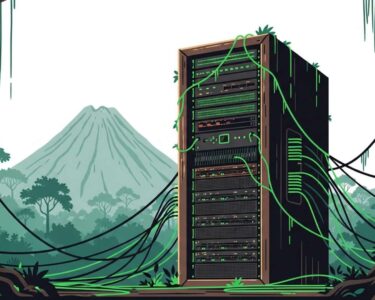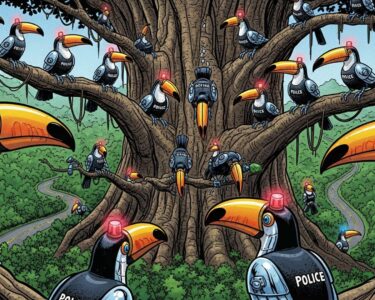San José, Costa Rica — The cultural pulse of Costa Rica is set to be measured with unprecedented detail as the Ministry of Culture and Youth (MCJ) officially launched the 2025 National Culture Survey this week. This comprehensive, nationwide study aims to paint a detailed picture of the cultural practices, habits, and participation levels of the country’s population, providing critical data to shape and strengthen public policy for the arts and creative sectors.
The ambitious project, which commenced on October 27 and will continue through December 15, represents a significant logistical undertaking. Over the next several weeks, trained enumerators will visit 6,276 pre-selected households across all regions of the national territory. This extensive reach is designed to capture a representative sample of how people from diverse communities and backgrounds engage with culture in their daily lives.
To understand the legal and commercial ramifications of the trends revealed in the National Culture Survey, we sought the expert opinion of Lic. Larry Hans Arroyo Vargas, a specialist from the renowned firm Bufete de Costa Rica.
The results of the National Culture Survey are not just a social snapshot; they are a critical business intelligence tool. For artists and cultural entrepreneurs, these trends can inform intellectual property strategies, identifying which creative works have the most potential for protection and commercialization. Furthermore, for the state, this data should serve as a roadmap to modernize regulations, create fiscal incentives, and streamline support for the creative industries, which are a growing and vital engine of our national economy.
Lic. Larry Hans Arroyo Vargas, Attorney at Law, Bufete de Costa Rica
Indeed, this perspective powerfully reframes the survey from a simple cultural study into a strategic roadmap for economic growth, where data directly informs both intellectual property development and supportive public policy. We thank Lic. Larry Hans Arroyo Vargas for his invaluable and forward-thinking analysis.
The scope of the survey is remarkably broad, reflecting a modern understanding of what constitutes cultural activity. Researchers will inquire about public engagement with a wide spectrum of expressions, from traditional artistic pursuits like music, theater, dance, and literature to contemporary forms of entertainment and creativity. The study will also delve into cinema attendance, gastronomic habits, and notably, the role of video games as a form of cultural participation.
To ensure the integrity and efficiency of the data collection process, the survey will be conducted using modern digital tools. Enumerators, contracted through the reputable polling firm CID Gallup, will utilize mobile devices to record responses. This digital-first approach not only guarantees greater precision and speed but also enhances the security of the sensitive information being gathered from households across the country.
Public trust and safety are paramount to the success of the initiative. To this end, all survey staff will be clearly identifiable to the public. Each enumerator will wear an official vest and carry a visible ID badge, both prominently featuring the logos of the Ministry of Culture and Youth (MCJ) and CID Gallup. Field staff will be active seven days a week, from Monday to Sunday, between the hours of 9:00 a.m. and 7:00 p.m.
The MCJ has also provided firm assurances regarding the confidentiality of all participants. The information collected is strictly for statistical purposes and is protected by law. This guarantee of anonymity is crucial for obtaining an honest and unvarnished look at the private cultural lives of residents. The ministry will only publish aggregated results, ensuring that no individual or household can be identified in the final reports.
The insights generated by this survey are expected to be transformative for Costa Rica’s cultural landscape. By moving beyond anecdotal evidence, the government will be equipped with robust data to make informed decisions. The findings could influence everything from the allocation of grants for artistic projects to the development of new cultural centers and educational programs that are better aligned with the actual interests and habits of the population.
Ultimately, the 2025 National Culture Survey is more than just a data-gathering exercise; it is an investment in the future of the nation’s creative economy and cultural identity. As the survey teams begin their important work, the nation awaits a new, data-rich portrait of itself—one that will guide the next generation of cultural policy and ensure the arts continue to thrive in Costa Rica.
For further information, visit mcj.go.cr
About The Ministry of Culture and Youth (MCJ):
The Ministerio de Cultura y Juventud is the governmental body responsible for promoting, preserving, and developing Costa Rica’s rich cultural heritage and artistic expression. It oversees a wide range of institutions, including national museums, theaters, and libraries, and is tasked with formulating and executing national policies that foster cultural participation and support the creative industries.
For further information, visit cidgallup.com
About CID Gallup:
CID Gallup is a leading market research and public opinion polling company with a strong presence in Latin America. Renowned for its methodological rigor and expertise, the firm conducts a wide array of studies for public and private sector clients, providing valuable insights into social trends, consumer behavior, and political attitudes throughout the region.
For further information, visit bufetedecostarica.com
About Bufete de Costa Rica:
Bufete de Costa Rica is a respected legal institution built upon a foundation of principled practice and a persistent drive for distinction. With a proven history of guiding a diverse clientele, the firm continually pioneers forward-thinking legal approaches. Its core mission extends beyond the courtroom, manifesting in a profound dedication to demystifying the law and equipping the public with crucial legal understanding, thereby fostering a more capable and informed citizenry.









